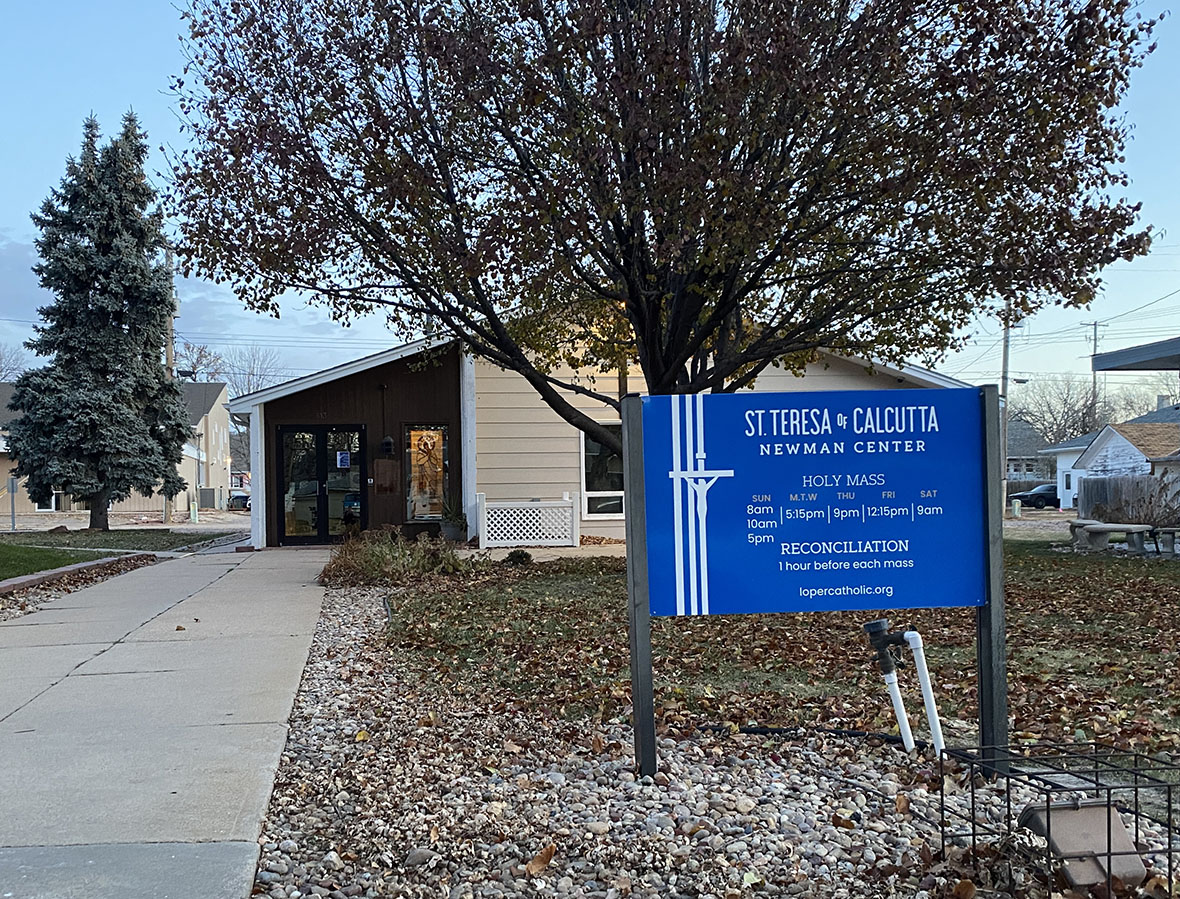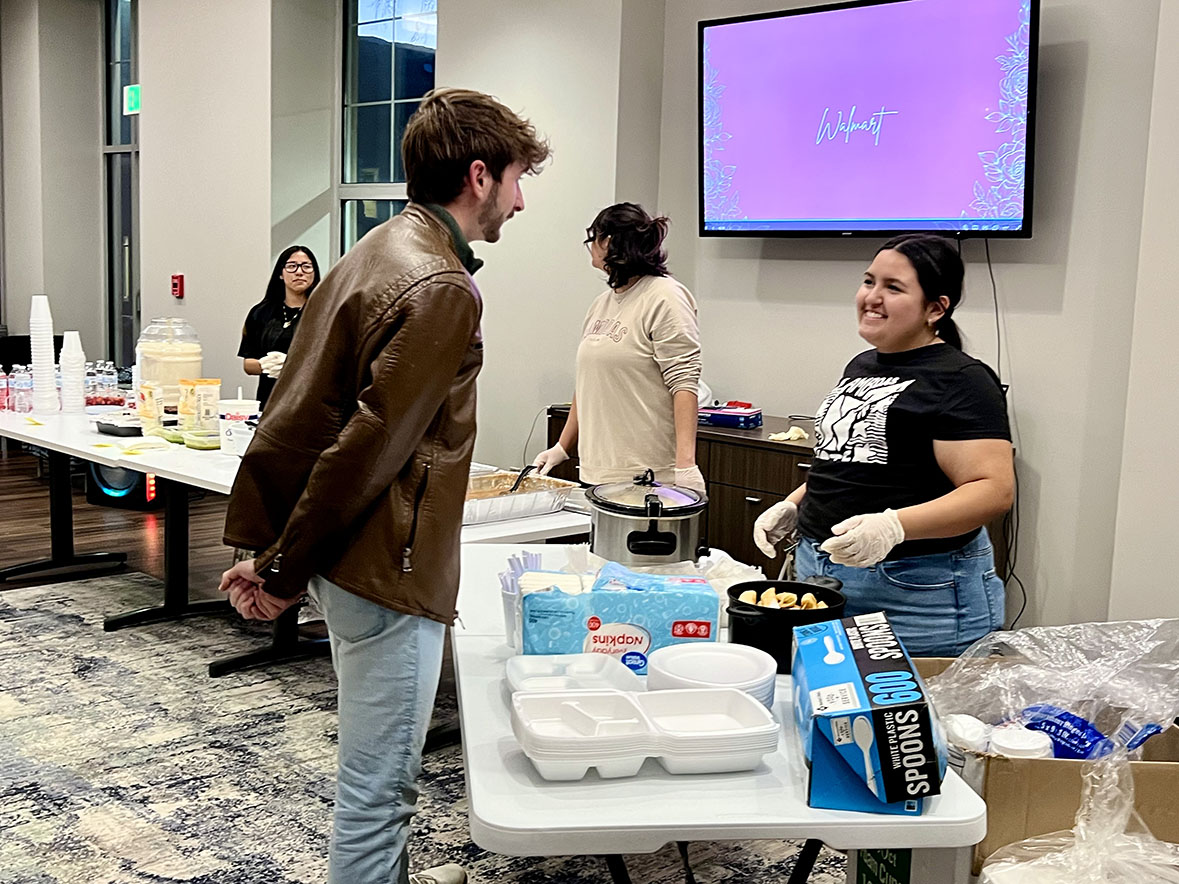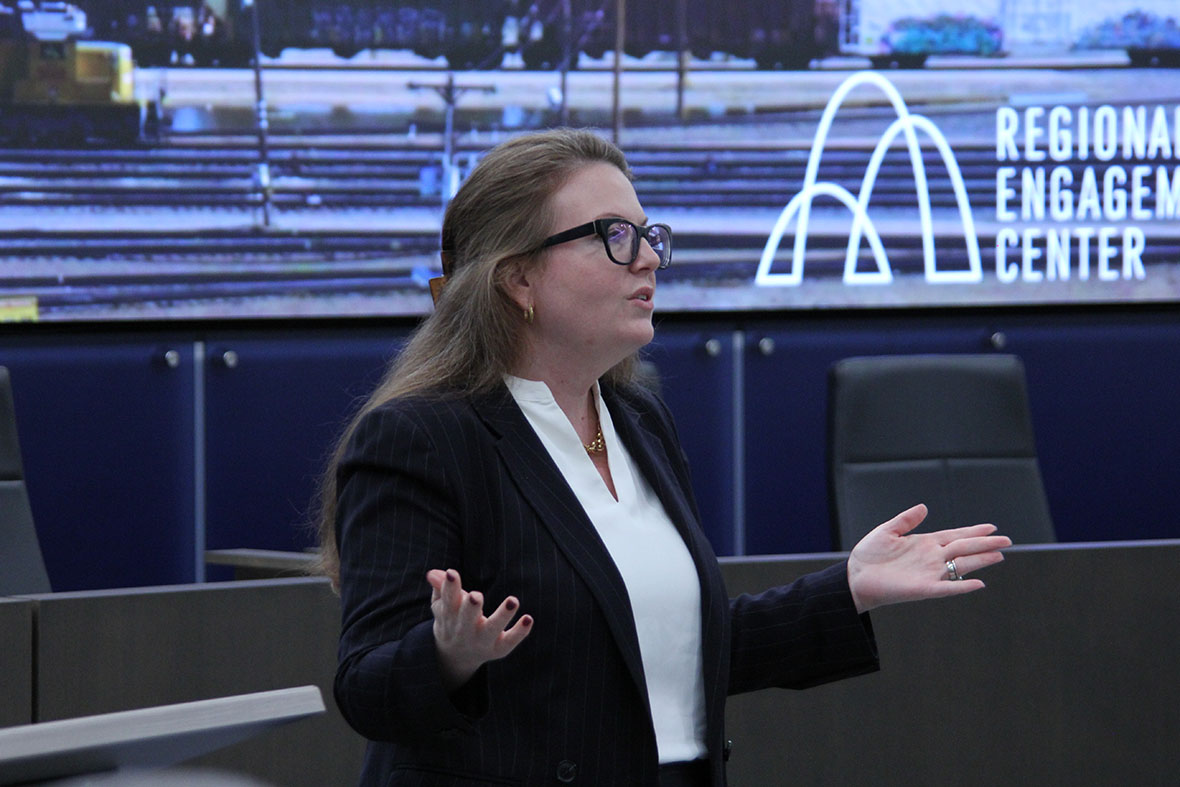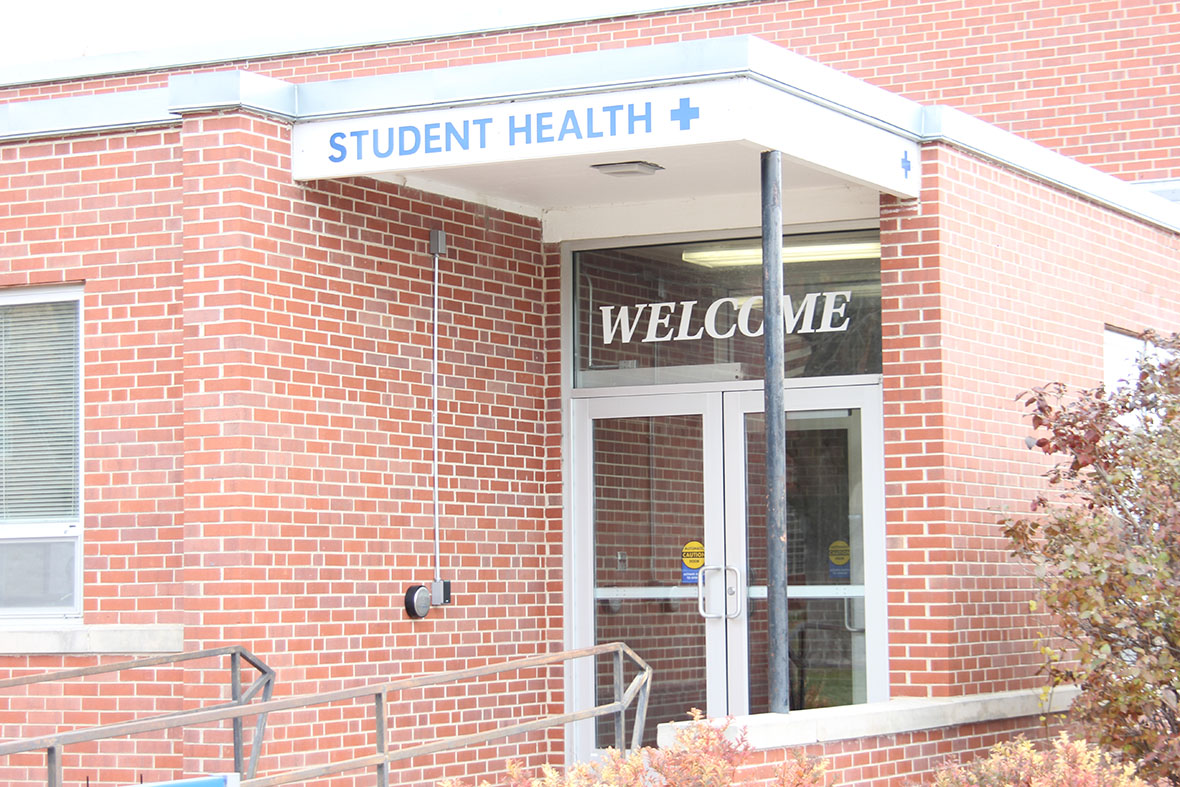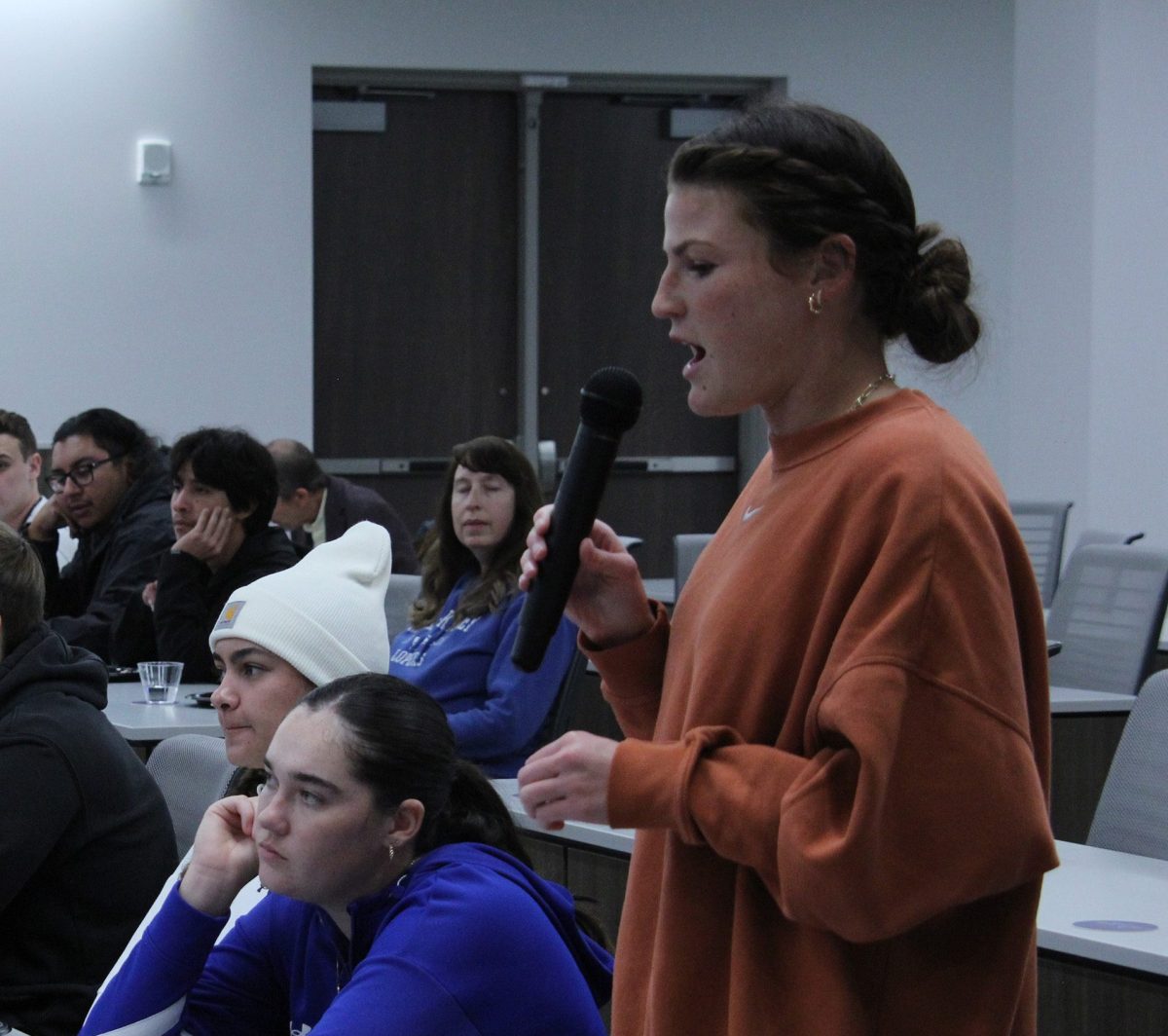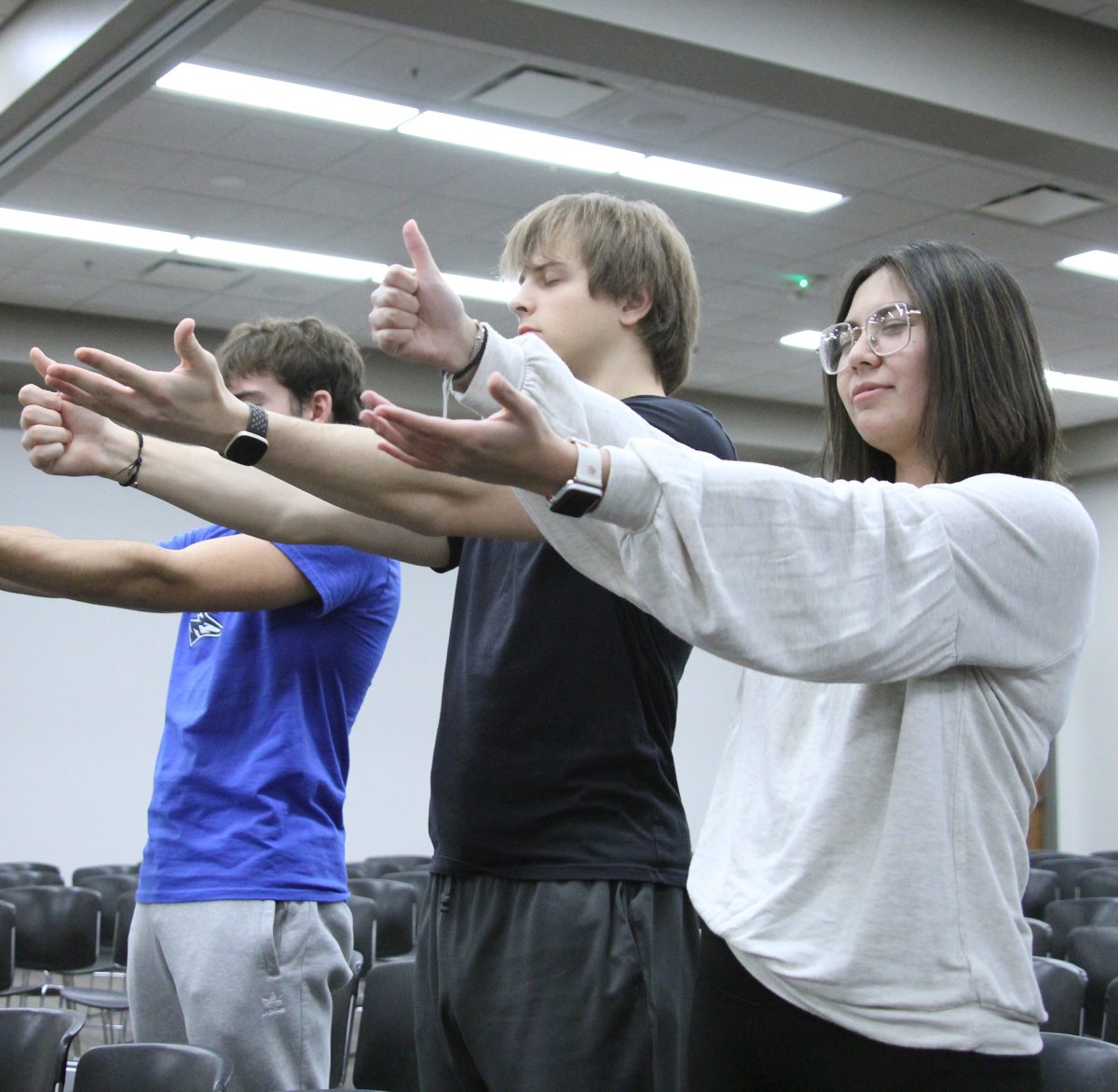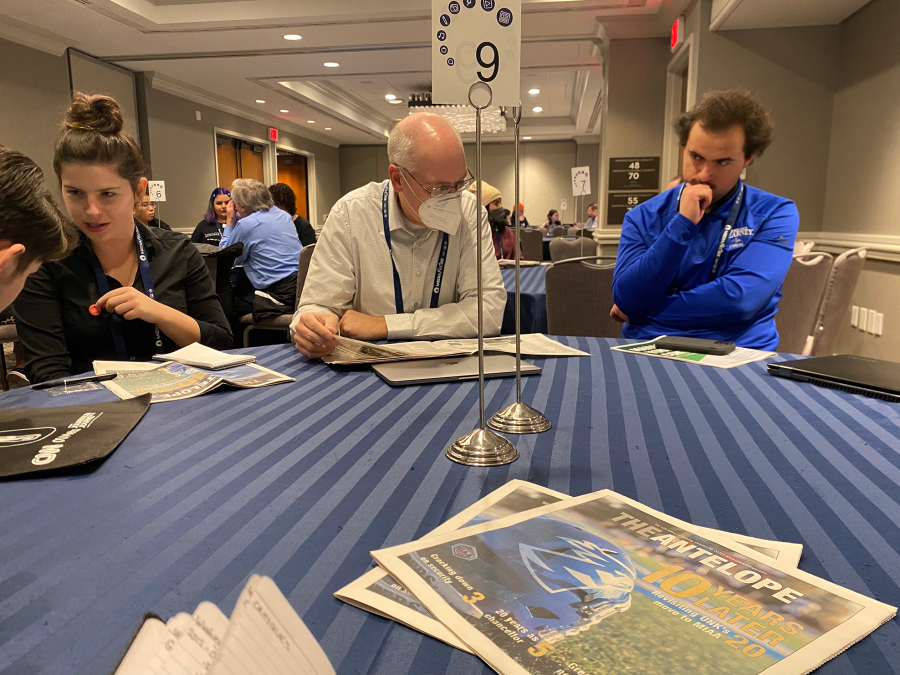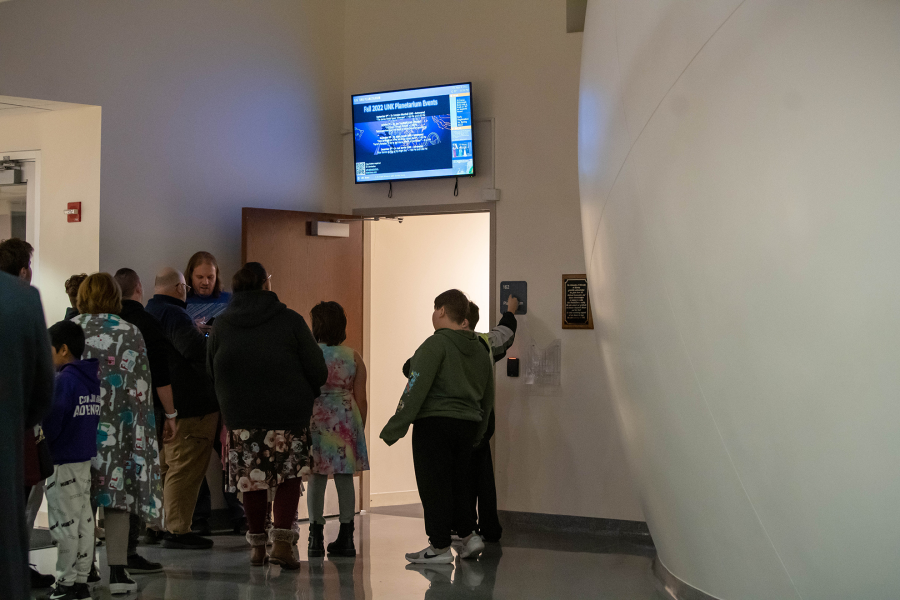Bickford spends 9 days in Central Plateau collecting information to help create service training program
Brock Madsen
Antelope Staff
The University of Nebraska system is organizing time and expertise to help the suffering country of Haiti, by creating an extension service training program and sending specialists in fields like engineering, health, agriculture and business to Haiti.

Bickford, right, with local pastor in charge of one of the programs sites (middle) and a man named Threese, (left) who oversees another site and started one school currently under construction by university’s program.
James Goedert, engineering professor at the University of Nebraska at Lincoln, is working to create a sustainable, school-building program at the Flower of Hope School in Haiti. His wife, Martha Goedert, assistant professor at the University of Nebraska Medical center, educates birth attendants, focusing on Haiti’s problems with high maternal and infant mortality.
The Goederts came to see University of Nebraska at Kearney’s associate professor, Dr. Nate Bickford, who was eager to use his expertise in aquaponics to establish responsible agricultural practices in Haiti.
With the Goederts’ combined efforts, there will soon be more schools in Haiti and more children surviving to school age. The program has its plans for improving education and healthcare in Haiti, but another major aspect in need of improvement is agricultural practices.
Bickford said he became personally involved with the program when he saw how the University of Nebraska can help the suffering nation, and his confidence in the University’s ability to help is quite inspiring.
With the few successful farms they have, Haitians can’t produce enough food to feed the country. This puts Haiti in a state of dependence, relying heavily on food imports from other countries.
“What Haiti really needs is the opportunity to learn, the opportunity to learn how to make the most out of the few resources they have. And that’s what Universities do; we teach people,” Bickford said. “We, as a university are probably more equipped to provide such education compared to non-government organizations or faith based mission programs, due to our abundance of highly educated and specialized personnel. We’re rather sure that everything which needs to be done to fix Haiti, we can carve out of our faculty and staff’s knowledge and skill sets.”
Haitians educated by the visiting faculty members can then pass that knowledge onto others in their communities, creating a cycle of education. This kind of education could make it possible for Haitians to improve the quality of fundamental fields such as health, education and agriculture. The ultimate goal is to alleviate the state of dependence in the country.
Bickford visited Haiti this last December and spent nine days in Haiti’s central plateau region, making assessments on the resources available and their most effective use in agriculture. He said Haiti’s agricultural sector could greatly benefit from the implementation of drip irrigation due to much of the country’s limited access to fresh water.
Bickford plans to use his expertise to help introduce the practice of aquaponics to agricultural communities in Haiti. Aquaponics is a promising field that combines aquaculture and hydroponics to provide nutrient-rich water to crops.
Bickford succinctly defines the motivation and ambition of the University of Nebraska by stating, “the poverty in Haiti is terrible, however if the university of Nebraska organizes the skills, talents and drive of its faculty and students we can make long-term changes in Haiti.”
Other UNK faculty from various departments are working towards achieving grant funding so they can return to Haiti this spring and further their extension service training program.
This program aims to educate Haitian communities in ways that will make it possible for them to do more than just survive on the few resources available to them. By working together with the community, the University of Nebraska system is making it possible for Haitians to pull their country out of poverty.
 Haiti at a glance
Haiti at a glance
Haiti is the poorest country in the western hemisphere, with 80% of its population living in poverty.
The education rates in Haiti are also some of the lowest in the western hemisphere. Approximately 61% of the Haitian population is literate which is very low compared to the average literacy rate of 90% seen in the neighboring Latin American and Caribbean nations.
Public education is so underfunded in Haiti that at least 90% of the primary schools are managed by religious organizations or other non-government organizations.
The education system in Haiti is one of the major aspects that the University of Nebraska’s program aims to improve. James and Martha Goedert are running a program which aims to take a hands-on approach at doing just that.


